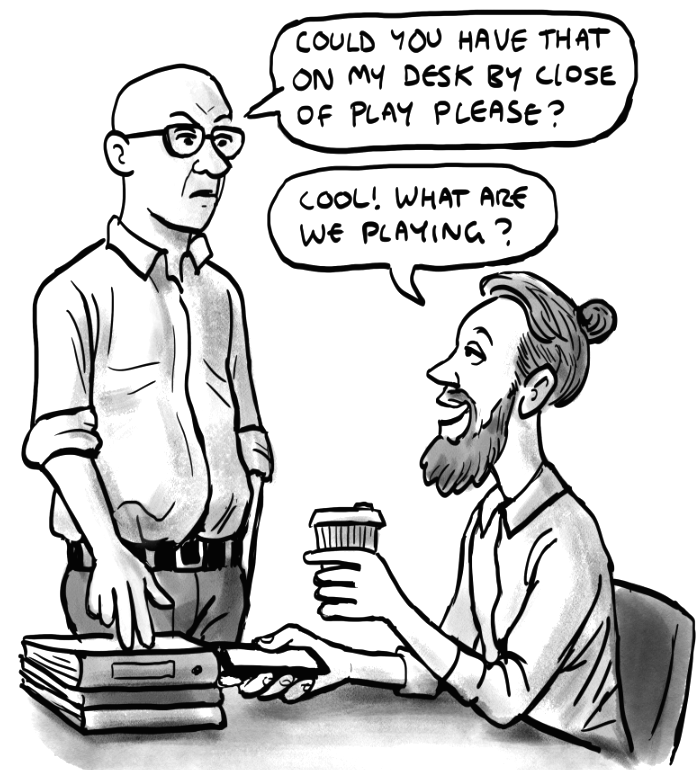It’s not easy being an autistic employee. Debby Elley and Maura Campbell know.

Okay, so you’ve made a mistake. Or something hasn’t gone your way at work and it’s ended up in a result that is disappointing or making you anxious. Unfortunately, being autistic, you most probably have a more sensitive emotional alarm system than a lot of people. Your inner Health and Safety Executive (we all have one, it’s called a survival mechanism) slams on the ‘red alert’ button quite enthusiastically at the first sign of trouble and shouts ‘EVACUATE THE BUILDING!’ Except you can’t do that, because you’re at work. In terms of the main survival responses, fight, flight or freeze, your brain is so busy trying to stop you running out the office screaming (flight), that your highly alert nervous system is forced into freeze mode instead. Mostly because the other ancient survival option, fight, is distinctly inappropriate at work. Now, freeze mode was possibly helpful over a few thousand years back, when you didn’t want a charging bison to notice you. Blending in with the background—great. Unfortunately, we have the same kind of lower brains that we did back then, which is a bit of a shame as this mode is distinctly unhelpful in an office crisis.
So, how do you shift out of ‘freeze’ mode? The first thing we’d like you to do is to recognize your emotional state. Check in with your body, be aware that because of what’s happened, you are tensing up, your heart is quickening and your thoughts are rushing. You can’t get out of freeze mode if you’re not aware you’re in it. Second, take a breather. Literally. Step away from your desk and go somewhere quiet to do some slow breathing. If you can, walk around a bit, preferably outdoors. Congratulate yourself. You’re dealing with it. Give yourself fifteen minutes if you can afford it just to slow down. If your thoughts start to speed up again, watch them like an observer.
Catastrophic predictions are just ‘panic thoughts’. Label them as such. ‘This is just my body telling me something has gone wrong’. Whatever you’ve done, no one has actually died (unless you’re a heart surgeon, which is a different book entirely). Remember also that even if you’re not sure what to do, that doesn’t mean there isn’t a satisfactory resolution to the problem. It’s just that you may not have enough information right now to deal with the problem. It’s important not to act straight away unless your mistake has led to an imminently catastrophic situation (see earlier mentioned book on heart surgery). Once your breathing and thinking has slowed, and you are out of freeze mode, you can move more steadily from crisis to action plan. Think of this as just a problem to be solved, like any other.
If it helps, think of yourself in the third person. This has happened. What is Maura going to do now? Or What will Debby do to rectify the situation?
Things go wrong at work. People make mistakes. Don’t tell yourself you’re a disaster just because you’re a perfectionist and today you were human. It’s okay. If you were to remain in freeze mode, you’d do nothing, or cover your mistake hoping that no one would find out about it. This is a bad idea. Honesty is the best policy, as soon as possible, so that there’s a chance to put things right.
If you’ve messed up, or misunderstood something and you need a bit of help with it, tell someone as soon as possible. Usually, that will be your direct manager but if that’s not a good option for any reason, at least immediately, tell someone who you trust, who is calm and collected. Not someone who will gasp and panic and make your anxiety a whole load worse.
This article is adapted from Just the Job! A Light-Hearted Guide to Office Life for the Autistic Employee by Debby Elley and Maura Campbell, and published by Jessica Kingsley.












































